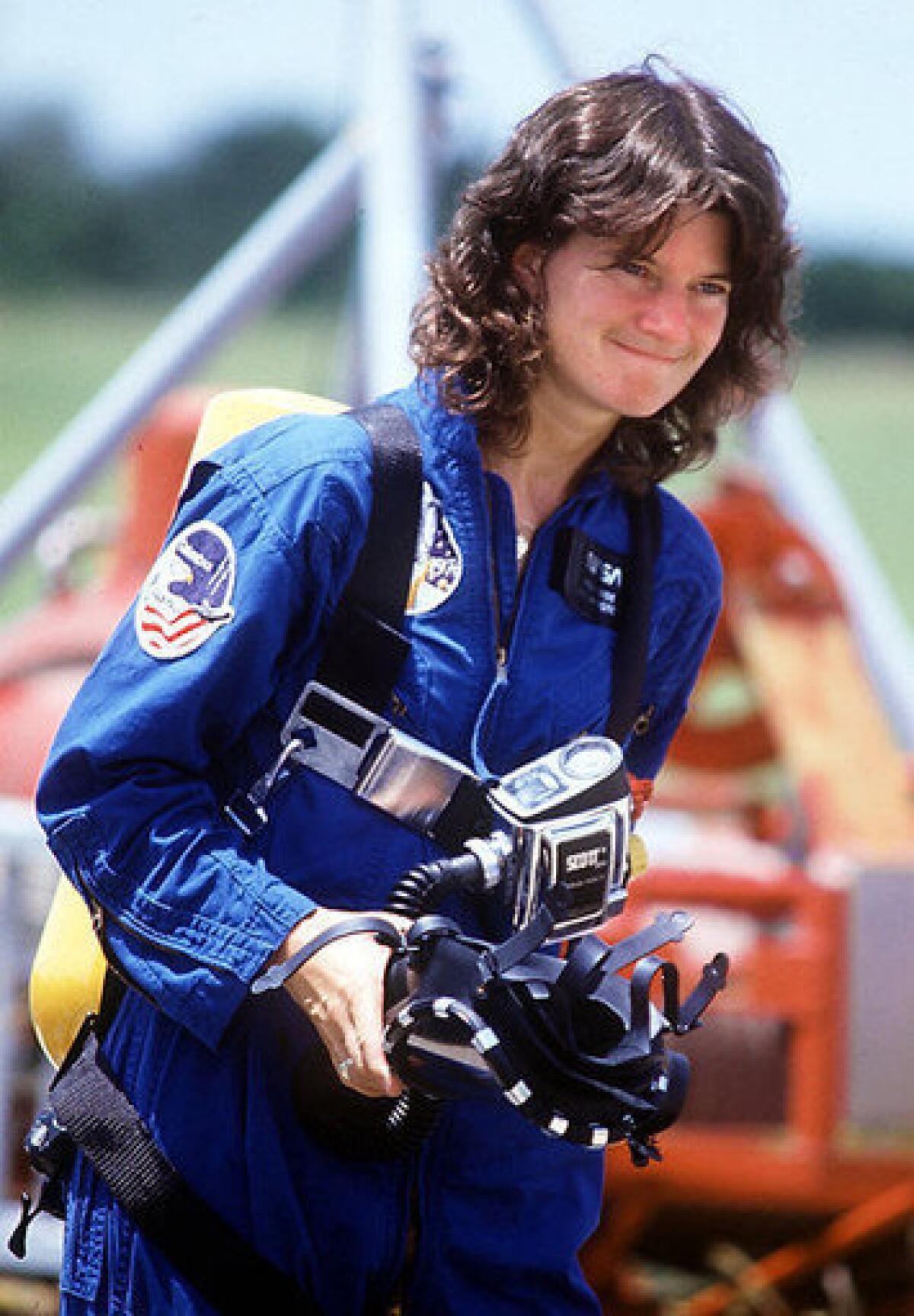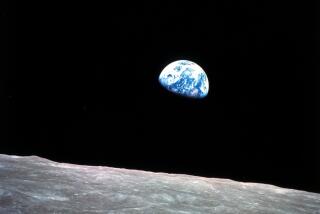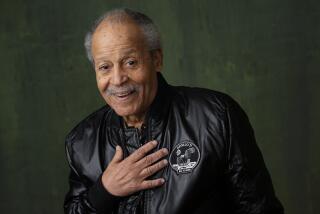Sally Ride remembered for handling historic role with grace

- Share via
As friends and former colleagues remembered astronaut Sally Ride, who died Monday of pancreatic cancer, a common theme was the grace with which she handled the responsibility of being the first American woman to fly in space.
“She was a terribly nice person and, not surprisingly, enormously poised,” said Lynn Eden, a senior research scholar at the Center for International Security and Cooperation at Stanford University, where Ride held a science fellowship from 1987 to 1989 when it was called the Center for International Security and Arms Control. “She was aware of her historic role, but she carried it lightly.”
Ride was one of six women to join NASA’s astronaut corps in 1978, and she flew on shuttle missions in 1983 and 1984. On both flights, the shuttle commander was Robert L. Crippen.
“She was the kind of person that broke a lot of glass ceilings for women back in the ‘80s,” said Crippen, who is retired and lives in Palm Beach Gardens, Fla. “She was a fantastic person, and we’re going to miss her very much.”
At the Jet Propulsion Laboratory in La Canada-Flintridge, astrophysicist Fiona A. Harrison said Monday that she still had vivid memories of watching the space shuttle Challenger blast off in 1983 with Ride aboard.
“I can remember being young and following the Apollo landings. I remember this kind of similarly -- it was a big barrier to break, to have a woman astronaut in what had been a male-dominated world,” she said.
Now at the helm of a space mission herself -- she serves as principle investigator for NASA’s Nuclear Spectroscopic Telescope Array, or NuSTAR – Harrison said she has been mindful of Ride’s efforts to be a role model for girls interested in science.
“She really poured her energy into that and made such a big difference for girls who were aspiring to be scientists and engineers,” she said. “It’s a terrible loss.”
Return to the Science Now blog.








